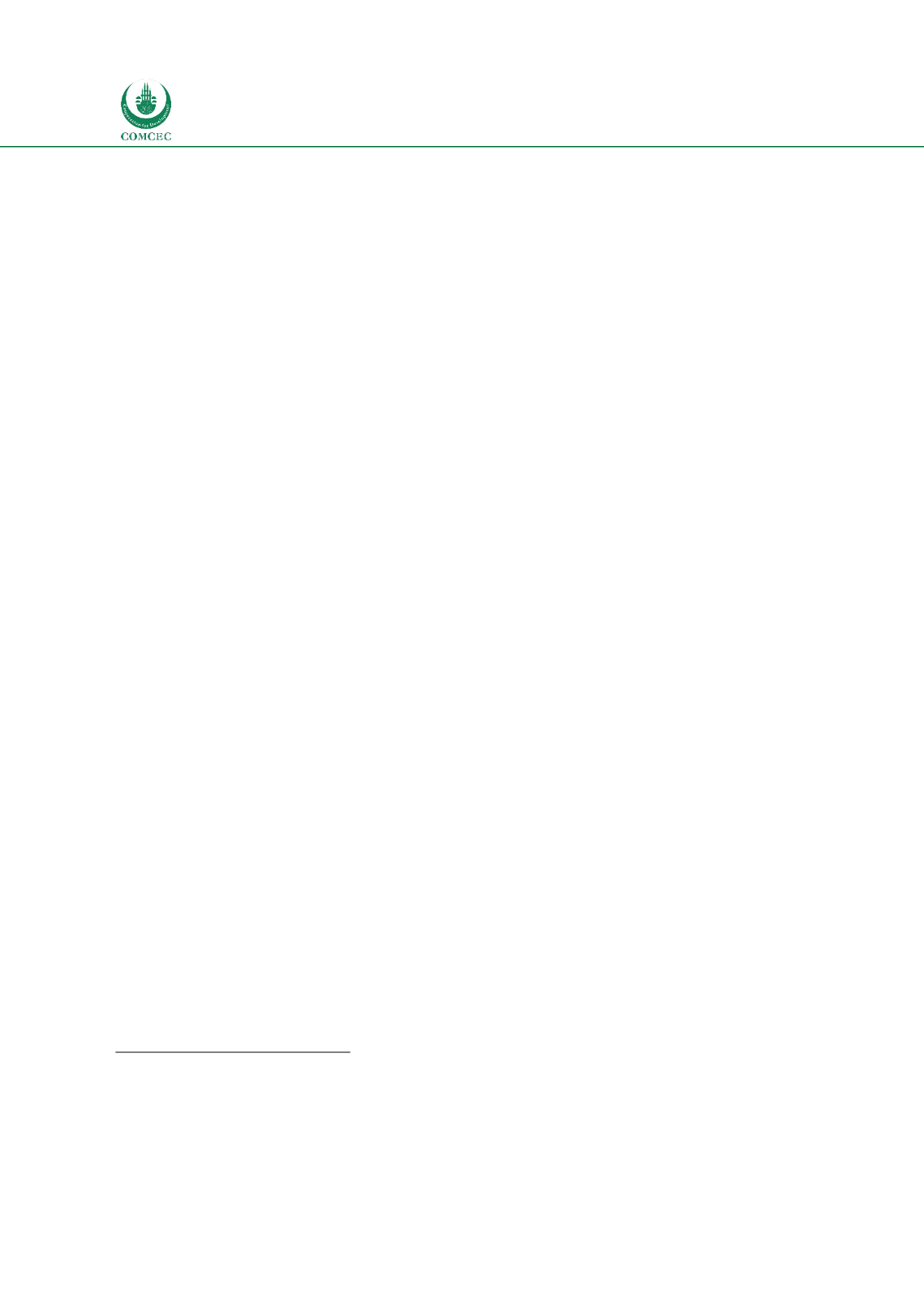

National and Global Islamic Financial Architecture:
Problems and Possible Solutions for the OIC Member Countries
52
financial institutions in accordance with the
Shariah
(AAOIFI, 2010). Though AAOIFI uses
IAS/IFRS as a basis for developing its standards when they do not contradict
Shariah
principles, it also introduces additional guidelines that are unique to the Islamic financial
sector. In order to achieve fair presentation for all stakeholders, AAOIFI requires Islamic
financial institutions to provide statements of compliance with its standards. IFSB has issued
principles and guidelines of good corporate governance, transparency and disclosure of
relevant information.
15
3.5.2. Credit-Reporting Systems and Rating Agencies
A key component of information infrastructure that can promote the development of a stable
financial sector is the availability of information on the credit quality of individuals,
instruments and organizations. By reducing the asymmetric information problems of adverse
selection and moral hazard, the availability of credit information enables the better evaluation
of risks of default of different stakeholders (IMF and World Bank 2005: 257). The ratings can
also be used to price different products appropriately, thereby increasing their marketability.
Two broad categories of credit information institutions relevant to the financial sector can be
identified. First, specialized credit rating agencies (CRAs) provide the credit ratings of large
businesses, corporations and financial securities. While the ratings of securities play an
important role in the proper functioning of capital markets, the ratings of corporations are
used to determine the regulatory capital requirements under Basel II and Basel III. IOSCO
(2003) provides the principles to guide the activities of CRAs, and IOSCO (2004) details the
code of conduct for CRAs. The four key elements covered in these documents include: Quality
and Integrity of the rating Process; Independence and Conflicts of Interest; Transparency and
Timeliness of Rating Disclosure; and Confidential Information.
Furthermore, credit-reporting registries gather information on the credit quality of individuals
and smaller firms that are not rated by the rating agencies. A sound and effective legal and
regulatory framework for credit registry must strive to balance between the sharing of
relevant information with the privacy and protection of consumers. WB and IMF (2005)
identify the legal and regulatory framework that is needed for a sound credit reporting system
to include laws on data and consumer protection and regulations on bank secrecy, consumer
credit and fair credit granting.
While information produced by credit registries can be used by both conventional and Islamic
financial institutions to make decisions on whether or not to finance clients and small
businesses, there are some specific issues that may arise when rating Islamic financial
securities such as sukuk. Furthermore, other than providing the risk attributes of these
securities, there is also a need to disclose Shariah related issues inherent in these structures
(Ahmed 2013). However, as most traditional CRAs may not be equipped to provide a rating in
Shariah compliance due to the lack to expertise, there may be a need for a specialized
organization to do the Shariah ratings. The International Islamic Rating Agency (IIRA) based in
15
The relevant standards include the following: IFSB (2007),
Disclosures to Promote Transparency and Market Discipline for
Institutions offering Islamic Financial Services (excluding Islamic Insurance (Takâful) Institutions and Islamic Mutual
Funds);
IFSB (2006),
Guiding Principles on Corporate Governance for Institutions offering only Islamic Financial Services
(Excluding Islamic Insurance (Takâful) Institutions and Islamic Mutual Funds;
IFSB (2011),
Guidance Note on the Recognition
of Ratings by external Credit Assessment Institutions (ECAIS) on Takâful and ReTakâful Undertaking.
















